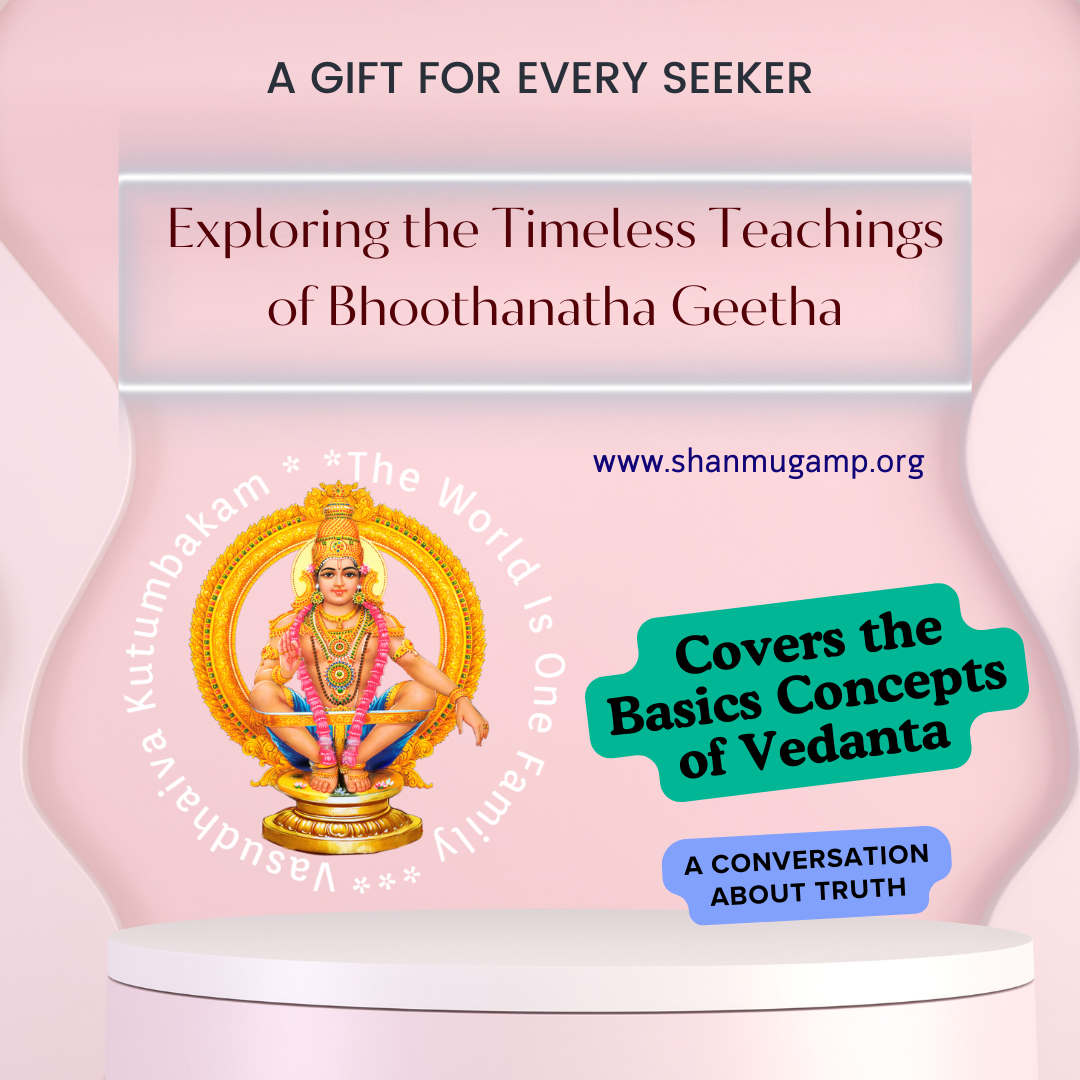Concealed within the ancient Sanskrit tales lies a precious script known as Bhoothanatha Geetha. This brief yet profound text, attributed to Prince Manikanta, unfolds the fundamental ideas of Advaita Vedanta in a conversation with King Rajasekharan.
Back in 2018, I penned a detailed commentary on this book. However, given its length, I’m offering you a condensed introduction.
Simplified Sanskrit:
In contrast to its older counterpart, the Bhagavad Gita, Bhoothanatha Geetha imparts its teachings in simpler Sanskrit, making it accessible to a broader audience. Even with basic knowledge, one can grasp the profound verses. Take, for instance, the opening sloka:
“janma mrtyAdi duhkhAnAm nAzAya mahIpate karmano nAzanam mukhyam tadupAyam nizamyatAm”
Translation: “Oh King, destroying one’s karmas is important for the destruction of the suffering that arises from the cycle of birth and death. You can hear the way for it from me.”
A Conversation about Truth:
Much like the Bhagavad Gita, Bhoothanatha Geetha unfurls through a captivating dialogue. Prince Manikanta, embodying both spiritual wisdom and princely grace, guides King Rajasekharan towards self-realization. Their exchange delves into crucial Advaita Vedanta concepts:
- The nature of Brahman: The ultimate reality, Brahman, transcends form and attributes. The text beautifully illustrates this using the analogy of gold and ornaments, explaining that just as all ornaments are essentially gold, so too are all names and forms manifestations of the one, indivisible Brahman.
- Maya’s illusion: This subtle veil of misconception obscures our true nature. Manikanta skillfully dispels this illusion, revealing the “I” and “mine” as mere concepts superimposed on the ever-present Brahman.
- The path to liberation: Bhoothanatha Geetha emphasizes the importance of a true teacher (satguru) and warns against the pitfalls of mere intellectual pursuits, advocating for sincere devotion and self-inquiry.
Beyond the Similarities:
While drawing inspiration from the Bhagavad Gita, Bhoothanatha Geetha offers unique insights into Siddha wisdom and practical spirituality:
- Siddha wisdom: Manikanta’s possible connection to the Siddhas shines through in his detailed discussions of tattvas (elements of consciousness) and the purification of the mind.
- Practical spirituality: Acknowledging worldly responsibilities and desires, the text encourages a balanced approach, urging not to neglect the body but to utilize it as a vehicle for liberation.
A Gift for Every Seeker:
Whether you’re a long time seeker or a curious newcomer, Bhoothanatha Geetha offers a wealth of wisdom. Its simple language, engaging dialogue, and practical guidance make it a valuable resource for those seeking self-realization. Delve into its verses, contemplate its teachings, and embark on your transformative journey towards eternal truth.
Visit this link for a detailed commentary on Bhoothanatha Geetha.

